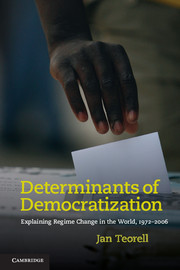Governing for Revolution
Prevailing views suggest rebels govern to enhance their organizational capacity, but this book demonstrates that some rebels undertake costly governance projects that can imperil their cadres during war. The origins for this choice began with the Chinese Communist Party (CCP) during the Chinese Civil War. The CCP knowingly introduced challenging governance projects, but nevertheless propagated its strategy globally, creating a behavioural model readily available to later rebels. The likelihood of whether later rebels' will imitate this model is determined by the compatibility between their goals and the CCP's objectives; only rebels that share the CCP's revolutionary goals decide to mimic the CCP's governance fully. Over time, ideational and material pressures further encouraged (and occasionally rewarded) revolutionary rebels' conformity to the CCP's template. Using archival data from six countries, primary rebel sources, fieldwork and quantitative analysis, Governing for Revolution underscores the mimicry of and ultimate convergence in revolutionary rebels' governance, that persists even today, despite vast differences in ideology.
- Emphasizes the importance of learning and governance to revolution
- Contextualizes rebel governance in broader historical processes
- Identifies challenges to the creation of social order
Awards
Co-recipient of an Honorable Mention, 2023 Best Book Award committee of the International Security Studies Section (ISSS), International Studies Association
Reviews & endorsements
Many rebels build governing institutions because the order thereby created is popular with the population, who in turn support the rebels and help them win their war. This conventional wisdom ignores the fact that some rebel groups create unpopular governing institutions that provoke popular resistance. To address this puzzle, Megan Stewart develops a new typology of rebel governance types and argues that rebels with transformative goals (e.g. revolutionaries) implement extensive and intensive governance that, because it upsets the political and social status quo, is unpopular with segments of the population. Stewart bases her argument upon the enduring influence of the Chinese revolution, and describes a well-chosen set of rebellions that did, and did not, govern intensively and extensively. She supplements her historically-rich case narratives with broader statistical studies. Governing for Revolution presents a provocative and original statement about rebel governance that also exemplifies the benefits of mixing qualitative and quantitative research and offers important implications for civil war studies, research on state making and governance, and for scholarship on the consequences of revolution. Douglas Lemke, Professor of Political Science, Pennsylvania State University
Governing for Revolution skilfully weaves historical case studies and crossnational evidence since 1945 to show how rebel goals, not military necessity or economic drivers, shapes how they decide to govern civilians in wartime. A welcome addition to the growing literature on rebel governance that rightly places politics at the center of its theory of how insurgents rule civilians. Jason Lyall, Associate Professor of Government, Dartmouth College
Stewart's thoughtful analysis and careful empirical work shed light on a critical question that has hindered understanding of the dynamics of civil war: why do some rebel groups invest more in governing local populations than others? Her answers link the subjects of rebel governance to the consequences of war. Beautifully written and cogently argued, Governing for Revolution makes a significant contribution to literature on the social dynamics of political violence. Tanisha M. Fazal, Associate Professor of Political Science, University of Minnesota
Product details
March 2021Hardback
9781108843645
320 pages
235 × 160 × 25 mm
0.62kg
12 b/w illus. 1 map 13 tables
Available
Table of Contents
- 1. Introduction
- 2. Iron and blood: the global-historical context of rebel governance strategies
- 3. Rebel goals determine governance strategies
- 4. Research design and alternative explanations
- 5. The Eritrean liberation struggle: varying goals and varying governance
- 6. Changing goals and changing governance: the Sudan People's Liberation Movement/Army
- 7. Modeling revolutionary governance in East Timor
- 8. Hezbollah: a Jihadist adaptation of the Chinese model
- 9. A statistical analysis of rebel goals and rebel governance
- 10. Conclusion: looking forward by looking back.










